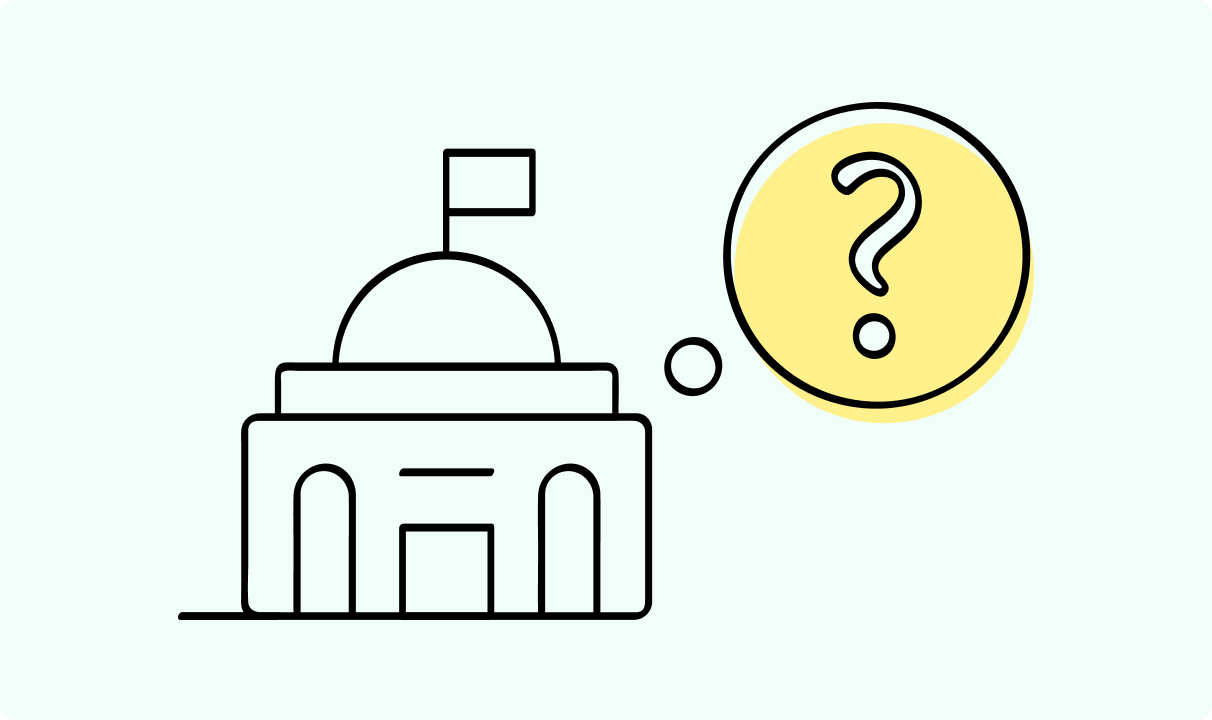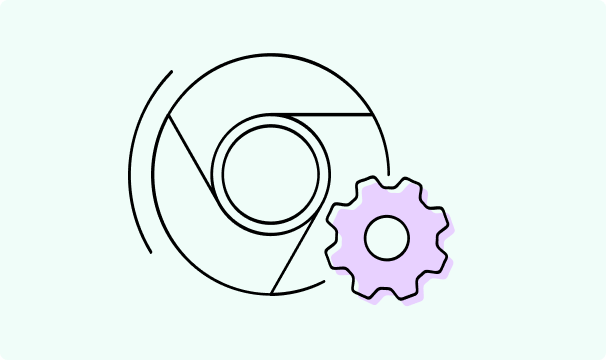Can a VPN be Tracked by The Government?
Key takeaways:
- A VPN provider with a solid no-logs policy and strong encryption makes it much harder for the government to track your real IP or browsing history.
- Websites can still track user activity with cookies and other scripts, even with a VPN tunnel.
- Free or untrustworthy VPN providers often collect connection logs or use monitoring software, making it easier for the police to trace users.
Using a VPN might make you feel invisible online, but the government or the police can find traces of you if they employ the needed resources for it, since tracking IPs is not the only way to recognize your profile online..
Many people turn to a VPN provider hoping to make their online activities private. But the truth is, it’s a bit messier than that. You’re surely a lot safer with it than without it, but not entirely untouchable.

Guoda Šulcaitė
3 min read

How Does a VPN Work?
A VPN provider creates a secure VPN tunnel that hides your IP address and protects your browsing history. It does this by encrypting internet traffic, which makes your data that much harder to track. As a result, third parties cannot see your internet activity, except the websites you visit that can track your activities via cookies or other fingerprinting methods.
However, there’s a difference between real-time data and past records. Live traffic is hidden, but connection logs can still exist if the VPN provider saves them. Those logs may contain timestamps, IPs, and usage details. Lucky for you, CometVPN never stores any logs whatsoever.
How Governments Attempt to Track VPN Users
Whether you like it or not, if they suspect something is off, the government may try to track your VPN-encrypted activities. Here are some methods they use:
- Accessing logs. If your VPN provider keeps connection logs, government agencies or police might get access through warrants.
- ISP visibility. Your internet service provider sees that you’ve started a VPN connection, though it can’t see inside the tunnel.
- Tracking by websites. Even with a VPN, sites like Google, Facebook, and more can track user activity using cookies and fingerprinting.
- Cookies, fingerprinting, tracking pixels. These let websites follow you across different sessions, tracking your browsing history.
- DNS leaks and misconfigs. This can expose your real DNS queries to the ISP or government.
- Deep Packet Inspection (DPI) and VPN blocking. Some countries use DPI to detect VPN patterns and may block connections or slow them.
In short, while VPN makes it much harder to track your activities, it’s still not entirely fool-proof if a lot of resources are employed to find you.
What VPNs the Government Can’t Track?
With appropriate motivation, the government would likely be able to crack some of it to find their way to you, but here are some cases where it would be extremely difficult to track you:
- No-log VPNs in privacy-friendly jurisdictions. A VPN provider with a strong no-logs policy in a privacy-friendly country won’t have any connection logs to hand over.
- Obfuscated and multi-hop VPNs. These hide VPN usage and route traffic through several servers, making it much harder to trace.
How to Make Your VPN Use More Anonymous
If you’re still not as satisfied as you’d like to be using only a VPN, here some extra ways to increase your anonymity online:
- Pay with crypto or gift cards to stay anonymous.
- Avoid logging into Google or Facebook while on your VPN.
- Use browser privacy extensions, plus Incognito mode, to block trackers.
- Don’t forget to disable location services and clear cookies.
Digital Activism and Protests
VPNs help activists escape surveillance or censorship by government agencies. You can use encrypted apps like Signal and Telegram so messages stay private. Also, we’d advise to turn off location sharing, avoid posting photos on social media, and hide your web camera to prevent facial recognition attempts.
To further solidify your anonymity, you can use burner emails and anonymous accounts to add extra protection. When using VPNs for activism, know your rights, your choices, and how much protection you really have. Make sure to check if your VPN provider stores logs or not, it’s an essential part of your privacy.
Conclusion
So, can VPNs be tracked by the government and police? Sometimes, yes. Especially if your VPN provider keeps connection logs or if you mess up your setup. But with a reputable VPN, strong no-logs policy, and smart online habits, you can stay several steps ahead of government agencies, police, and your internet service provider.
FAQs
Does VPN protect you from government surveillance?
A reliable VPN can help protect your data, but it won’t make you invisible if your provider keeps VPN connection logs.
Can the FBI see through a VPN?
If the VPN provider logs IPs or timestamps, the police or FBI can get those logs. But if it has a real no-logs policy, they can’t trace your activity this way.
What information could a VPN give to the police?
They could get your original IP, the time of connection, and possibly the VPN server used, if those are saved as connection logs.
Are free VPNs easier to track?
Yes, free VPNs often use tracking or share data to make money. They might also have weak security and many other holes in the security system.
Is it legal for the government to monitor VPN traffic?
In many places, yes, especially if the government or police have a warrant for that.

Author
Guoda Šulcaitė
Growth Manager at CometVPN
Guoda is an all-round marketing professional with deep knowledge in the tech SaaS industry, particularly VPNs and proxies. She has worked on numerous projects and helped achieve impressive results through project management, content production, and SEO.
Related articles
4 min read
Ethernet vs Wi-Fi: Which One is Better?
Ethernet and Wi-Fi are the two main ways to connect your computer to the internet. While Wi-Fi has received significantly more attention in recent years, especially among consumers, due to its simplicity and flexibility, ethernet is still widely used in various other applications.
Even if Wi-Fi is significantly more popular, it isn’t strictly better. Both methods have their benefits and drawbacks. Wi-Fi’s popularity comes from its ease-of-use and flexibility, but an ethernet connection can be much more useful in certain scenarios.

Adomas Šulcas

5 min read
How to Change Chrome Proxy Settings: The Ultimate Guide
A proxy server is an easy alternative to a VPN that can perform most of the functions of the latter. It’s a server that stands between your device and the destination server, taking your connection requests and forwarding them in your name.
Destination servers in almost all cases see the proxy server as the originator of the request. As such, proxies are widely used in various, mostly business-related applications whenever privacy, security, location changing, and several other factors are at play.

Guoda Šulcaitė